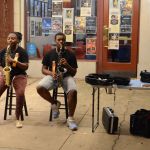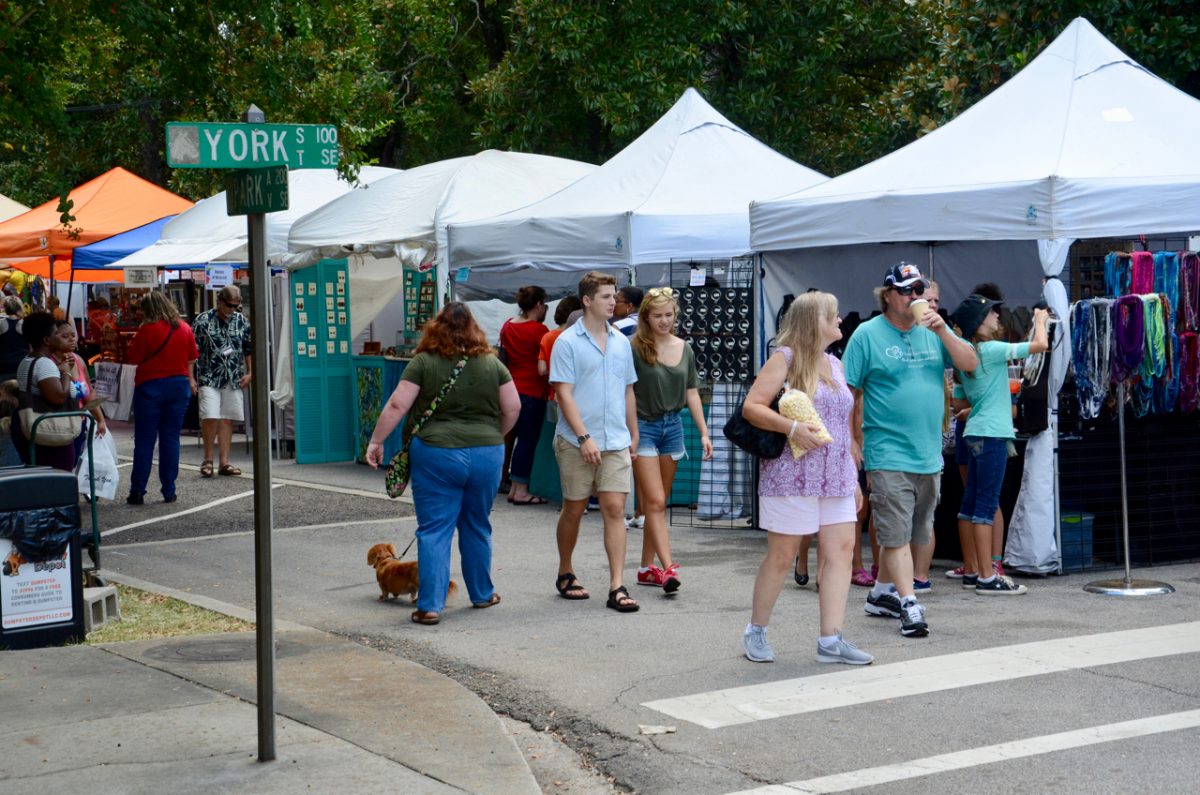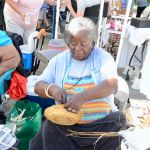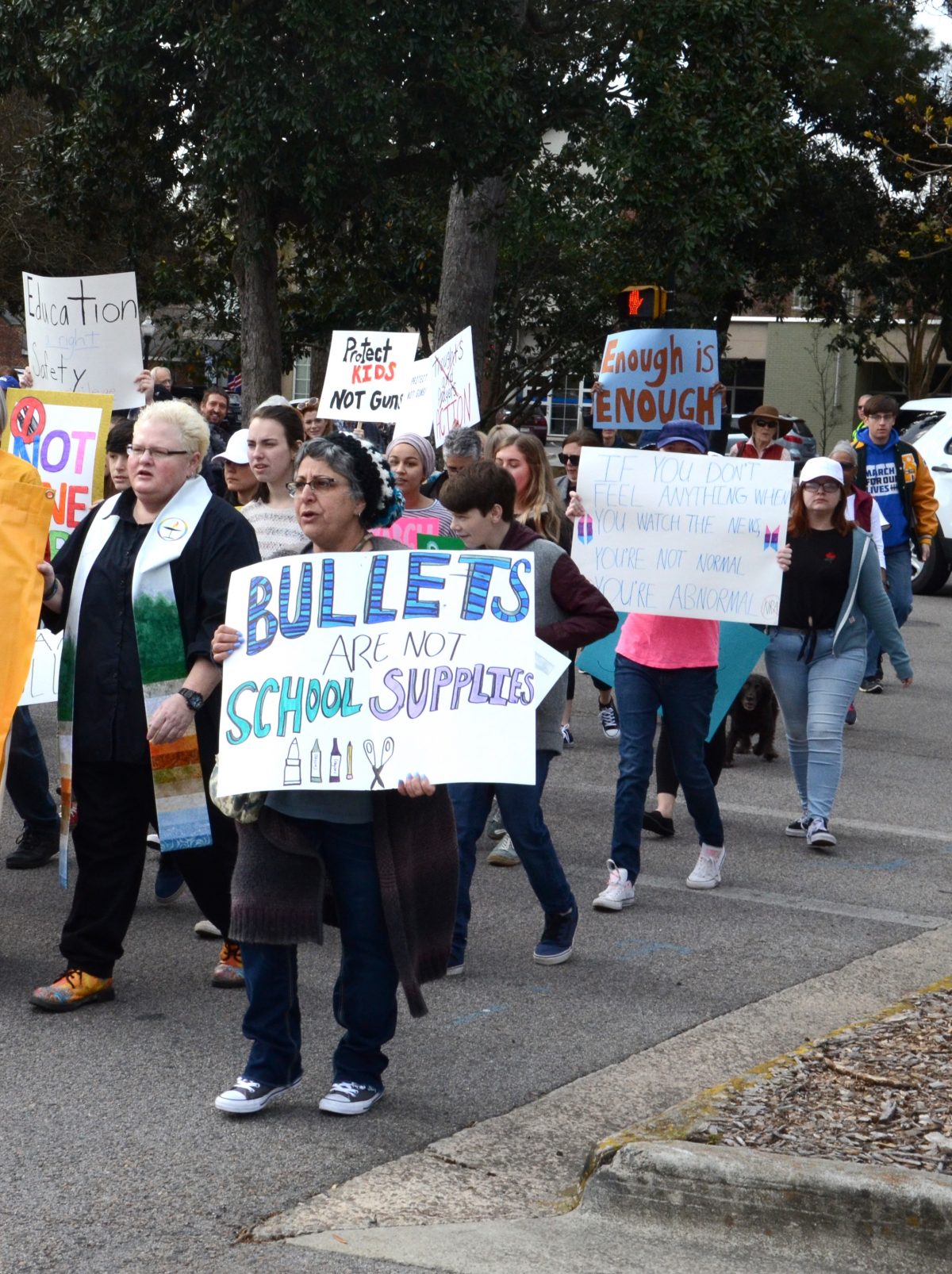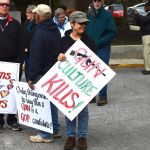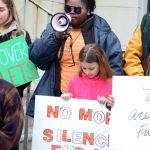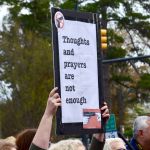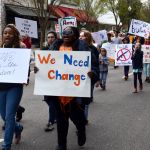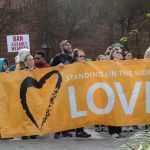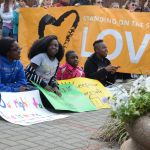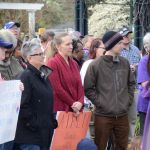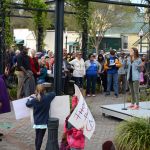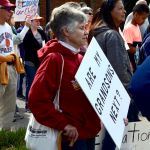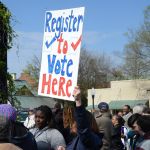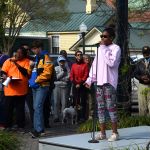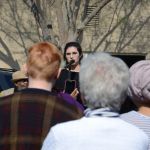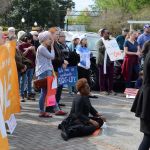As the constitutional historian at USCA, Beth was asked to speak about Justice Ginsburg’s contributions to the law over the course of her life. Her full remarks are below, followed by pictures I took at the event.
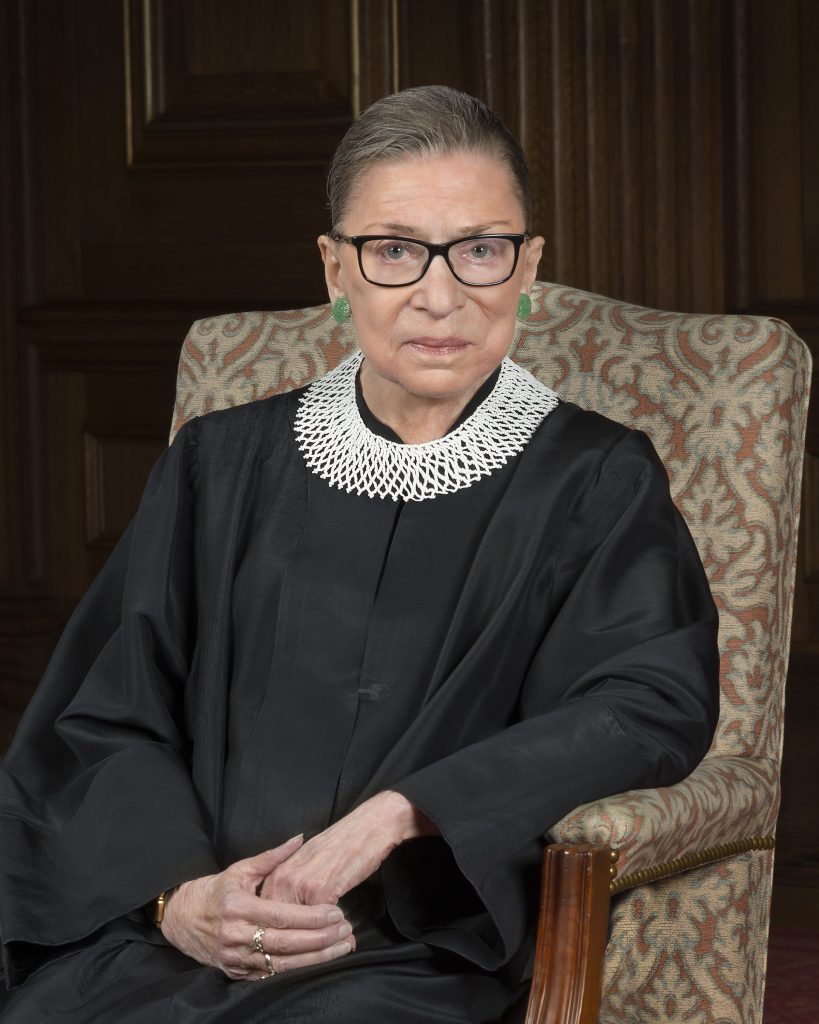
May her memory be a blessing. The Honorable Ruth Bader Ginsburg died on Rosh Hashanah. In the Jewish tradition, that makes her a person of great righteousness. May her memory be a blessing. What that means is not may we remember her to comfort ourselves, but may we remember her through our acts. May we continue her legacy, may we fight for those who are marginalized, may we fight for what is right and just, and may we defend her vision of gender equality, may we will into being her belief that “women belong in all places where decisions are being made.”
Women have been left out of the constitution, once by the framers’ failure to envision women as equal citizens and independent legal beings and then again by the thwarting of the ERA, but Ginsburg fought to make, in that centuries old document, a space for us.
After joining the faculty at Rutgers Law School, she began volunteering for the ACLU. Taking aim at laws ostensibly intended to protect women, she slowly began to reeducate the judiciary about the inherent oppression in such legislation, laws which turned “a pedestal into a cage.” She argued six cases before the Supreme Court between 1971 and 1978, winning five of them.
Reed vs Reed (1971) won women equal rights to administer estates, rejecting an Idaho law grounded in the belief that men were more familiar with the business world and thus better suited to the task. Her brief, a groundbreaking inventory of the law’s oppression of American women, became known as the “grandmother” brief and formed the basis for future challenges to women’s inequality.
In Frontiero v. Richardson (1973) she successfully argued for the right of women in the military to receive benefits for their spouses, just as men did, finding the fifth amendment’s due process clause required the equal treatment of men and women.
Ginsburg recognized that gender inequality hurt men as well as women, an argument she brought before the court in 1975, Wienberger v. Wiesenfeld, when she won the right for widowers, along with widows, to receive social security survivor benefits. More than a legal mind, she cared about those she fought for; after his wife’s death in childbirth, Stephen Wiesenfeld wanted the benefit to stay home and care for their infant son Jason; 23 years later she officiated at Jason’s wedding and 42 years later she presided over Stephen’s second wedding, this time at the Supreme Court. Along the way she presided at many weddings, including the same sex wedding of a former student, aligning with her unfailing support marriage equality, culminating in Obergefell v. Hodges, where she joined with the majority to find in the constitution the right to marriage equality. She presided over her grandson Paul’s ceremony and most recently that of a family friend, a few short weeks before her death.
In a seemingly more trivial case, Craig v. Boren (1976) a case she worked on but did not argue, Oklahoma boys won the right to buy light beer at the same age as girls. In reality, it was an incredibly significant case, one in which seven of the nine justices ruled that the by treating men and women differently, by letting girls drink at 18 but requiring boys to wait until 21, the law violated the fourteenth amendment—granting women significant protection. The case also raised the standard of review of gender discrimination from the lowest standard—rational basis—to intermediate scrutiny, a major, if incomplete step forward.
After joining the Supreme Court in 1993 as the second female justice, in 1996 Ginsburg penned her most significant majority ruling advancing women’s rights, United States v. Virginia, when the court ruled against the Virginia Military Institute’s male-only admissions policy, finding that even the proposed creation of a parallel female academy did not satisfy the fourteenth amendment’s equal protection clause. She wrote that “genuinely equal protection” leaves no room for “a law or official policy that denies to women simply because they are women equal opportunity to aspire, achieve, participate in, and contribute to society based upon what they can do.”
But it was her dissents that brought her fame, and that phrase “I dissent”, along with her affectionate nickname, “the notorious RBG,” came to represent to her admirers persistence in the face of injustice and the dogged belief that standing up for what was right mattered even if the face of seeming defeat. She forcefully dissented in cases threatening women’s access to contraception, called out the men on the court for using “flimsy and transparent justifications” to restrict a woman’s right to choose, and criticized the assaults on democracy made in Citizens United along with the court’s destruction of the Voting Rights Act.
She was never afraid to draw on her personal experiences to argue for equality and fair treatment, pointing out to the men on the court in a case centered on the strip search student, “they have never been a 13-year old girl. It’s a very sensitive age for a girl. I don’t think my colleagues, some of them, understand that.”
As a young woman, she faced open discrimination in the workplace, losing a job for the crime of being pregnant with her first child with the love of her life, her husband Marty. After the Supreme Court ruled that pregnancy discrimination was not a form of gender discrimination, denying women protection, a few years later she helped draft the Pregnancy Discrimination Act, which still protects pregnant women today from workplace discrimination.
In Ledbetter v. Goodyear Tire & Rubber Company (2007), the Supreme Court ruled that, notwithstanding that Lilly Ledbetter was paid less than her male counterparts for 19 long years, she had missed the narrow window to file suit and thus was entitled to no legal remedy. Ginsburg issued her scathing dissent from the bench, accusing her male counterparts of failing “to comprehend…the insidious way in which women can be victims of pay discrimination” and demanded Congress act. Two years later they did, passing the Lilly Ledbettter Fair Pay Act of 2009; a framed copy hung on her office wall until her death.
Ginsburg accomplished so much, finding women and our rights in the fifth and fourteenth amendments, making space for us in a reluctant constitution, raising the bar for gender discrimination, and broadening the definition of equal protection.
But the work remains to be done. The battle for the Equal Rights Amendment, which as she pointed out, every constitution in the world written since 1950 has contained in some form, is ongoing. The Supreme Court still has not embraced a strict standard of scrutiny for sex and gender-based discrimination, the higher standard required to justify racially and religiously disparate laws. And today, the reproductive rights of women, both those free and unfree are under a greater assault than ever before. Ginsburg urged us to “do something outside ourselves, something that makes life a little better for people less fortunate than you,” let us continue the fight in her honor. May her memory be a blessing.
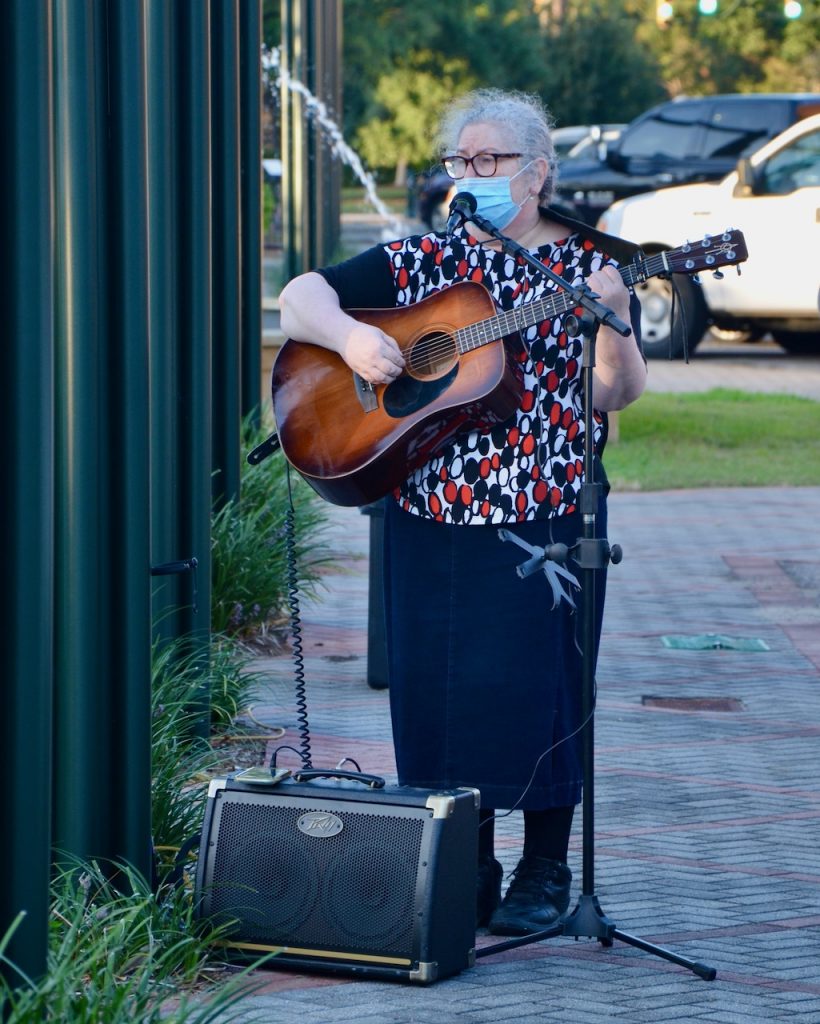
Local folks singer offered a few songs old and one written for the occasion. 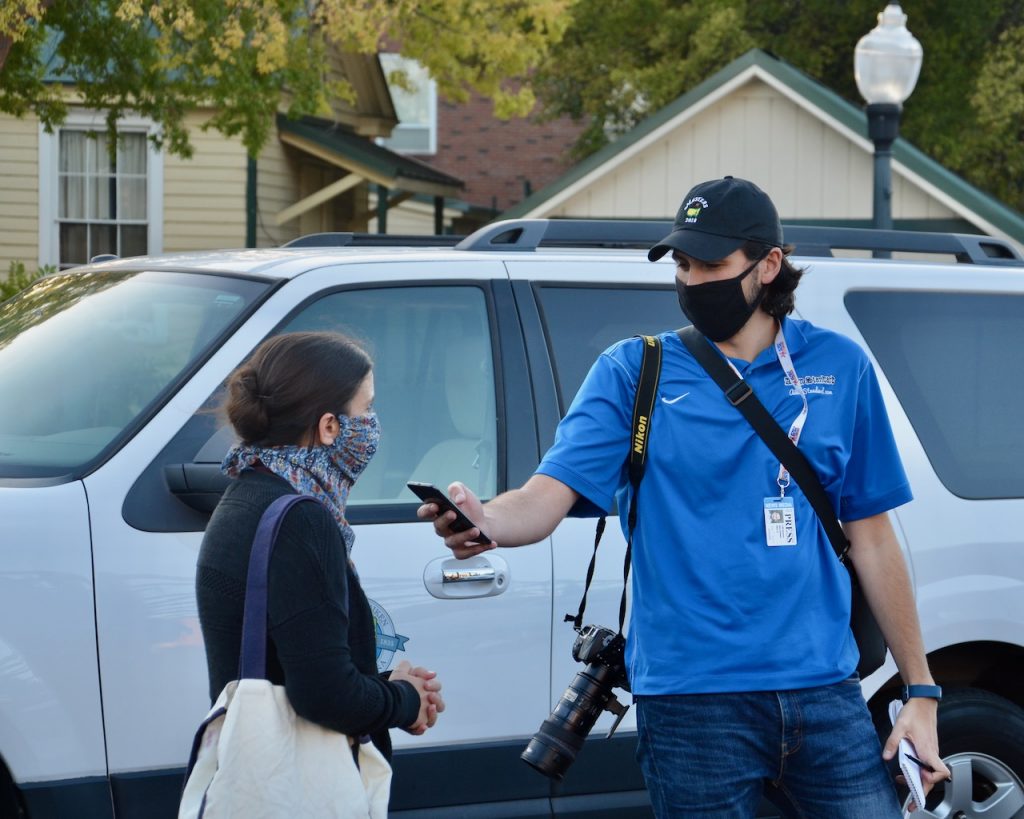
Beth being interviewed by the Aiken Standard before making her remarks. 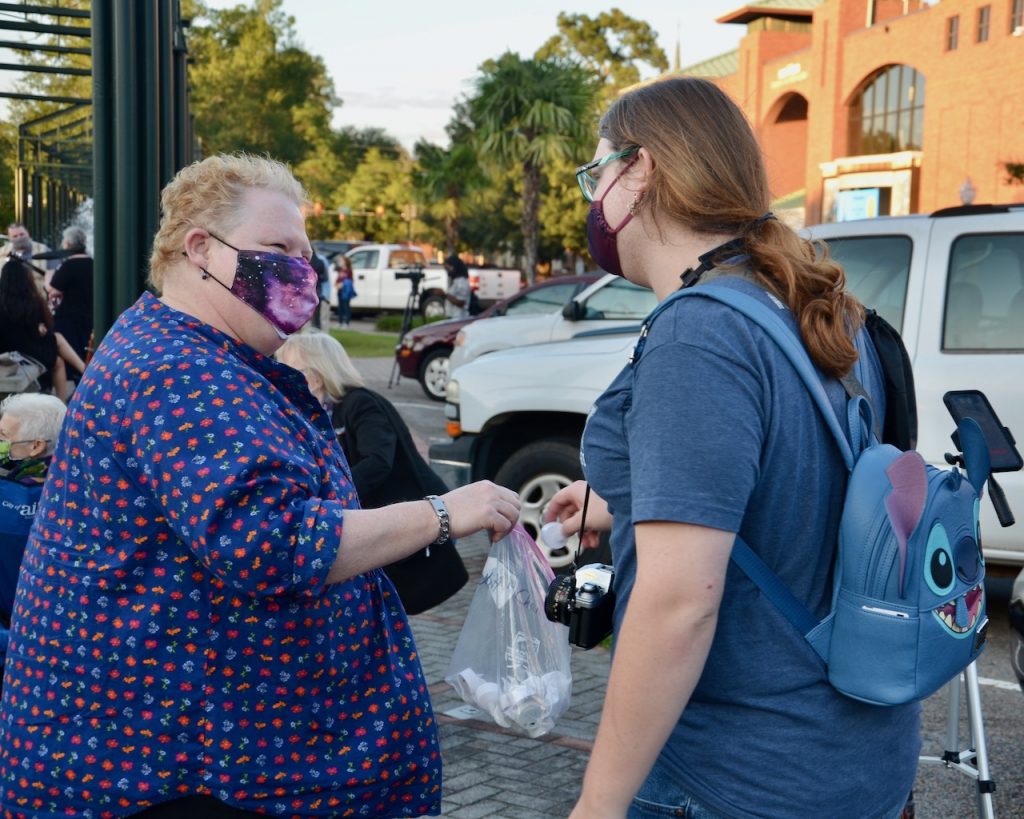
A USCA student and local pastor sharing a few words. 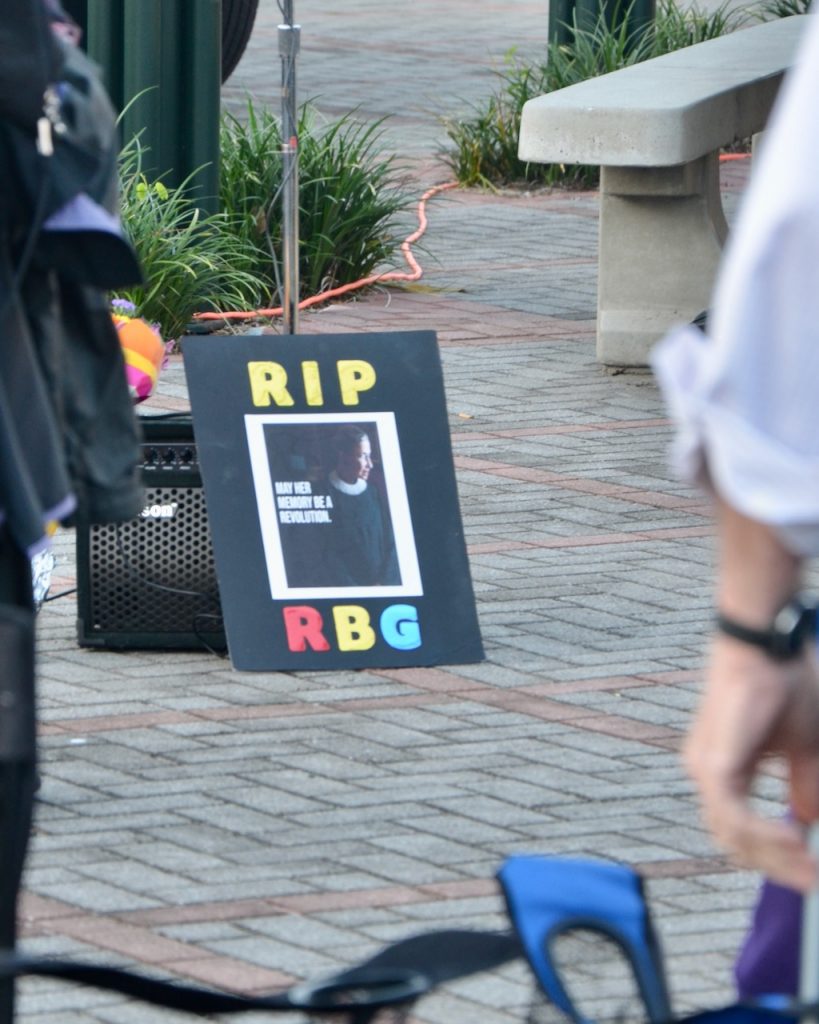
A variety of signs were brought by people attending. 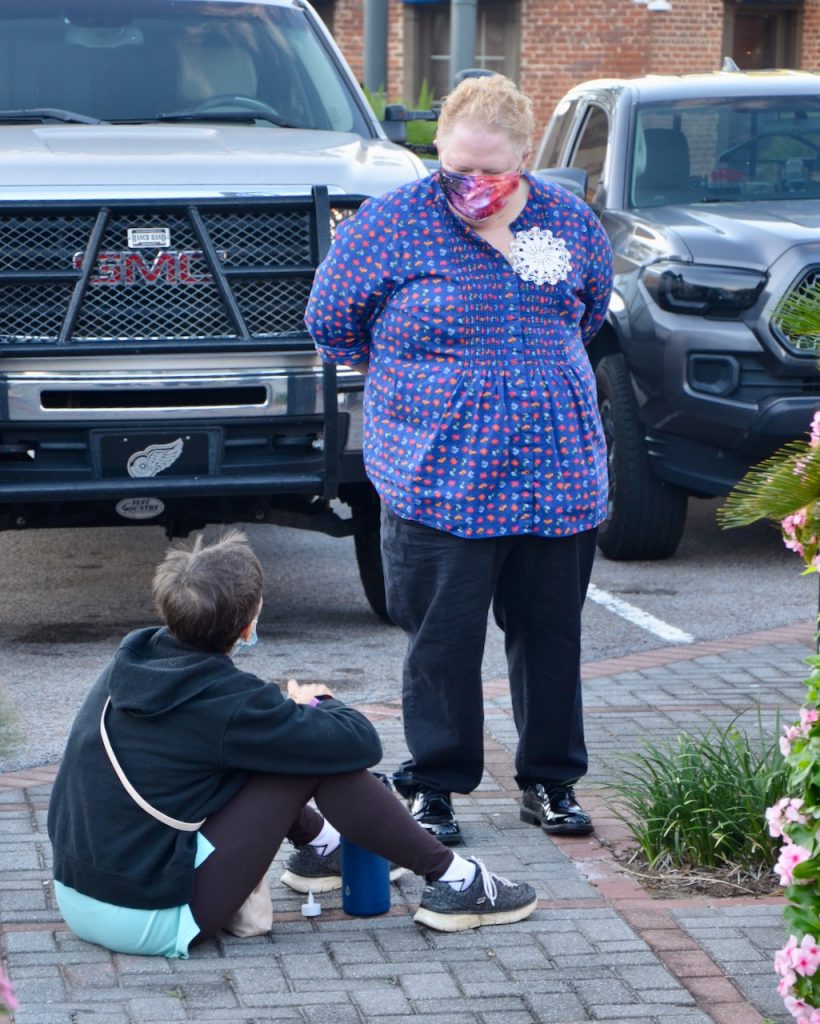
Many people took a few minutes to share their thoughts and feelings. 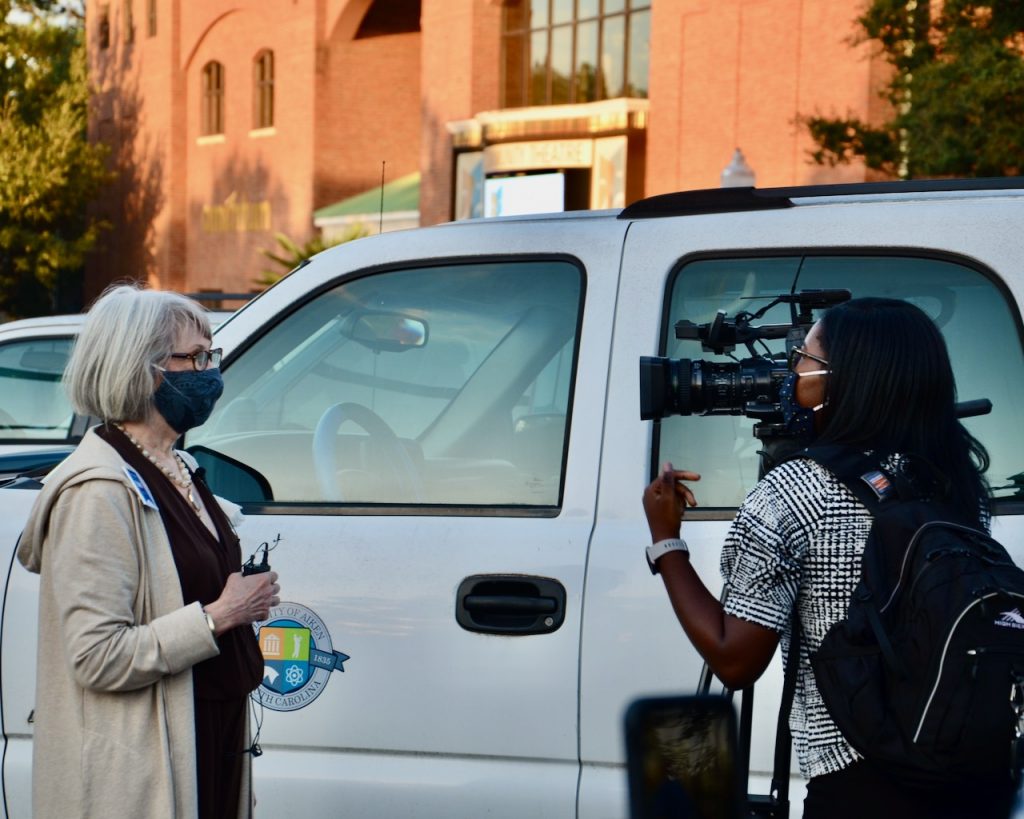
A local TV reporter interviewing the organizer from the local League of Women voters. 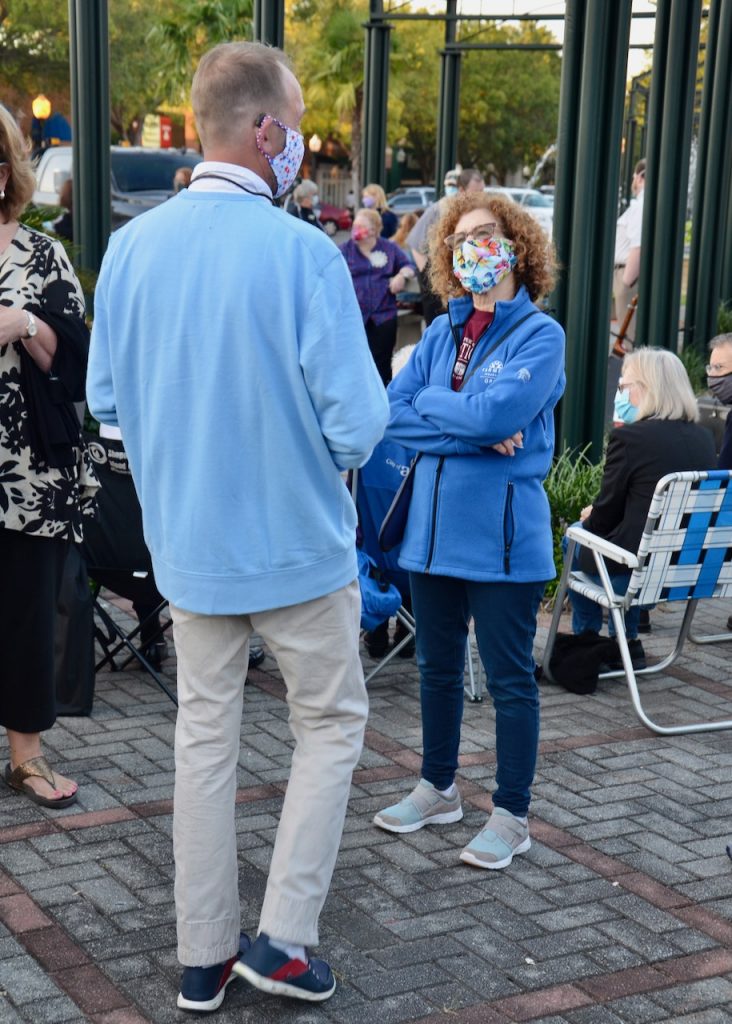
Another local pastor talking with members of the community. 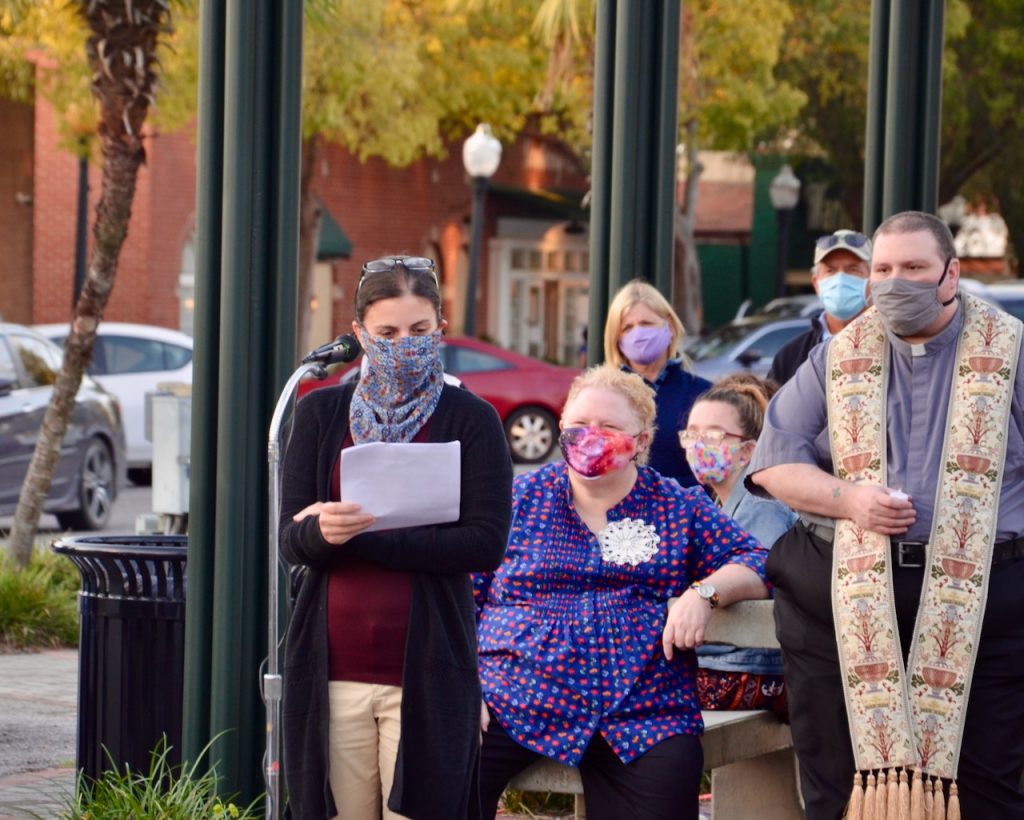
Beth, offering her remarks. 
Several people came with collars inspired by those worn by Ginsburg 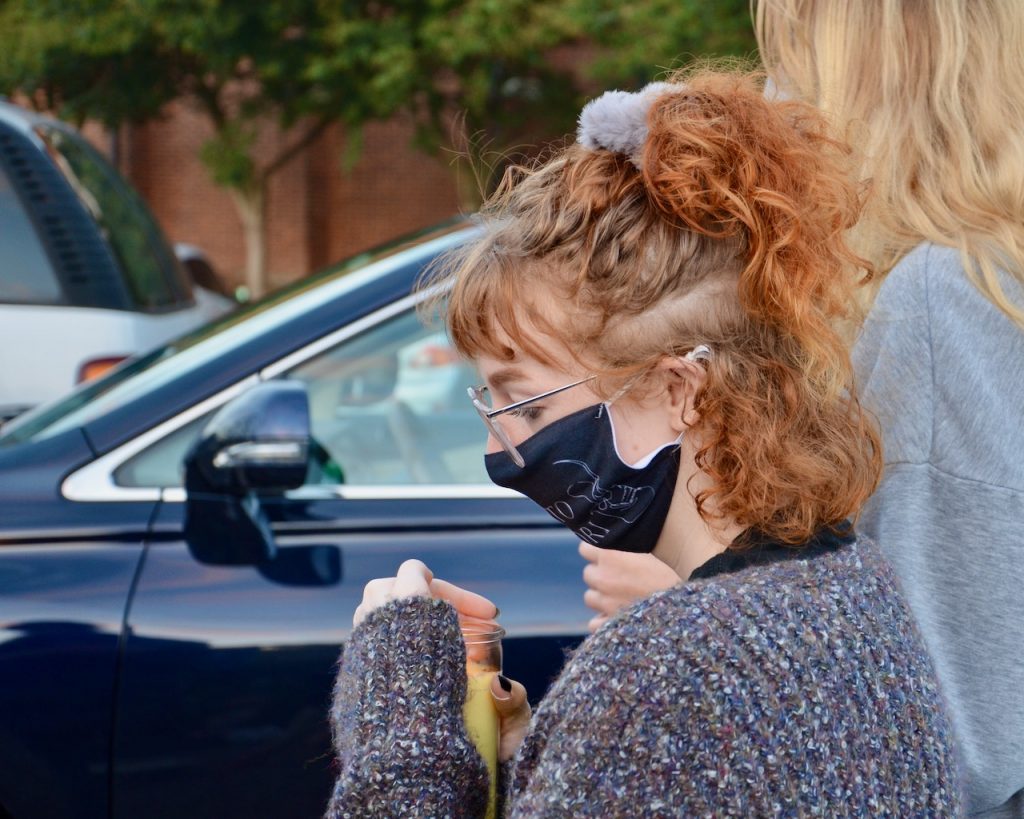
Students from USCA trying to keep their candles alight in the wind of the evening. 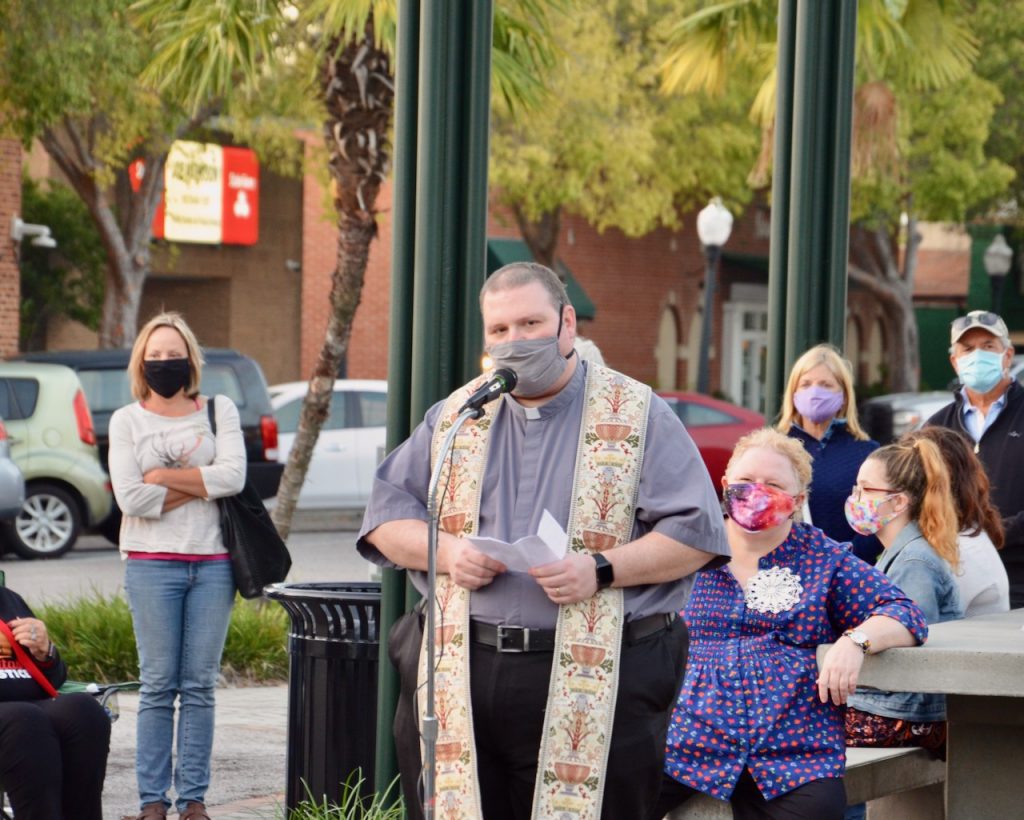
Another local pastor shared about the importance of RBG to the LBGTQI community. 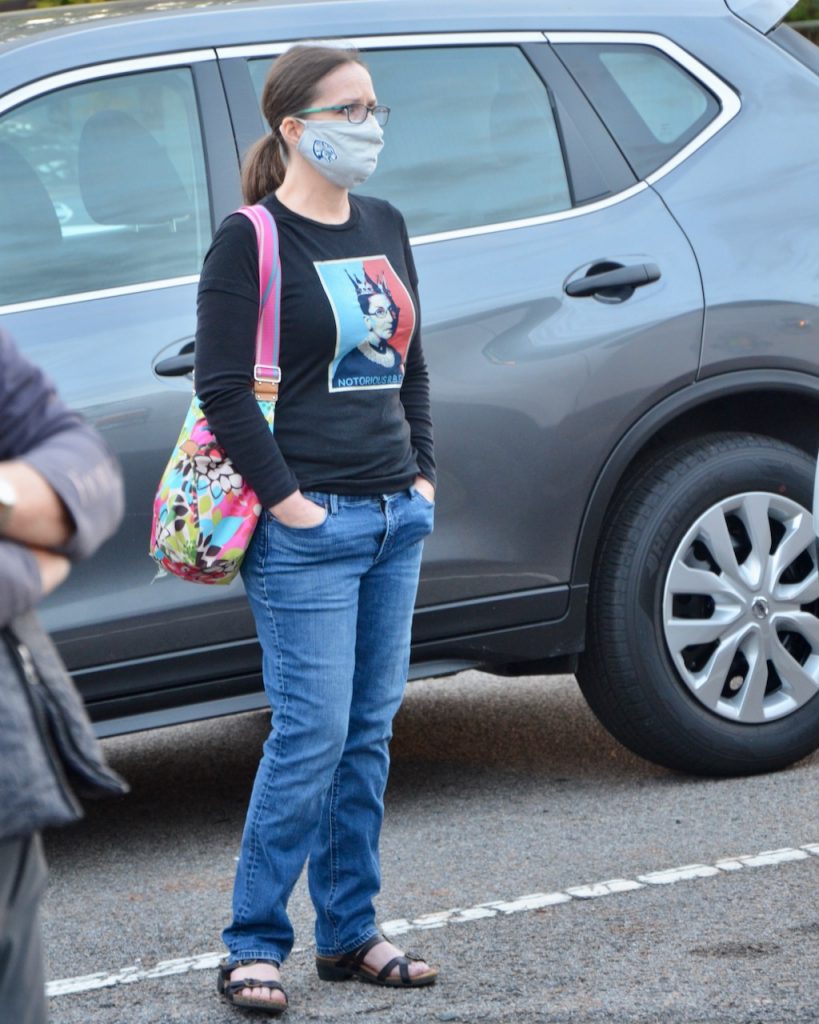
A variety of RBG inspired t-shirts were on display. 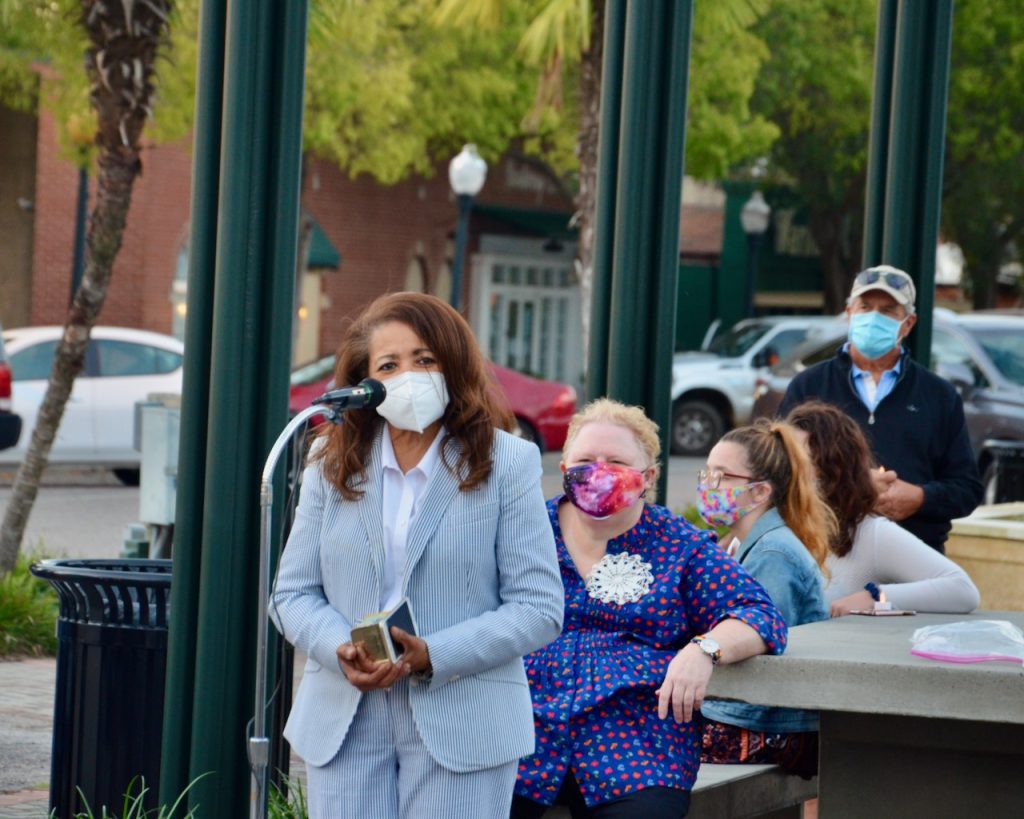
Lessie Price, from Aiken City Counsel offered her thoughts and encouraged everyone to vote. 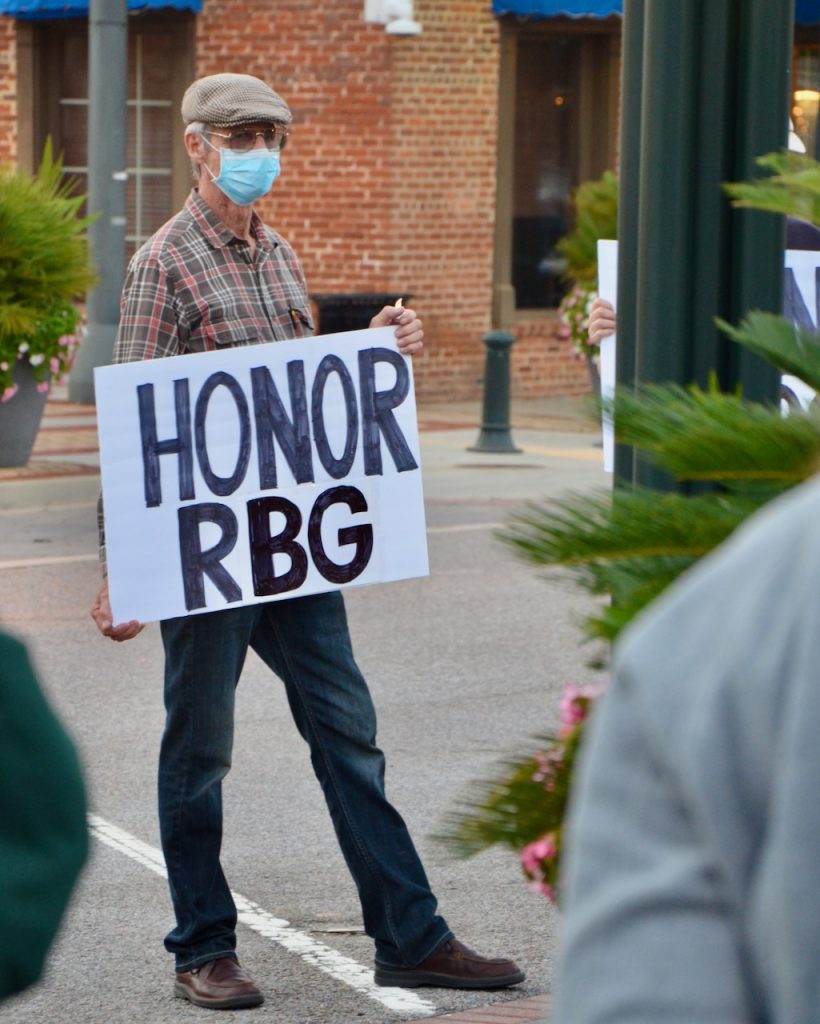
All present wanted to make sure that RBG was honored in the present and future. 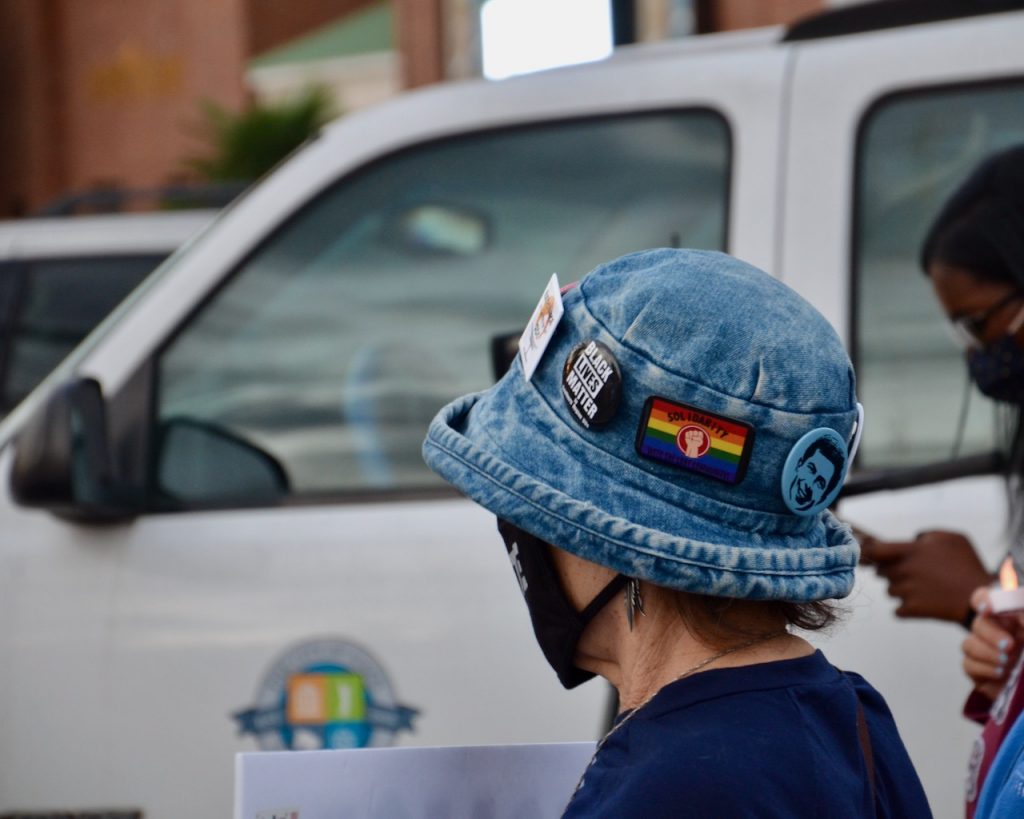
There was much recognition of the work left to be done by those of us here to carry it forward. 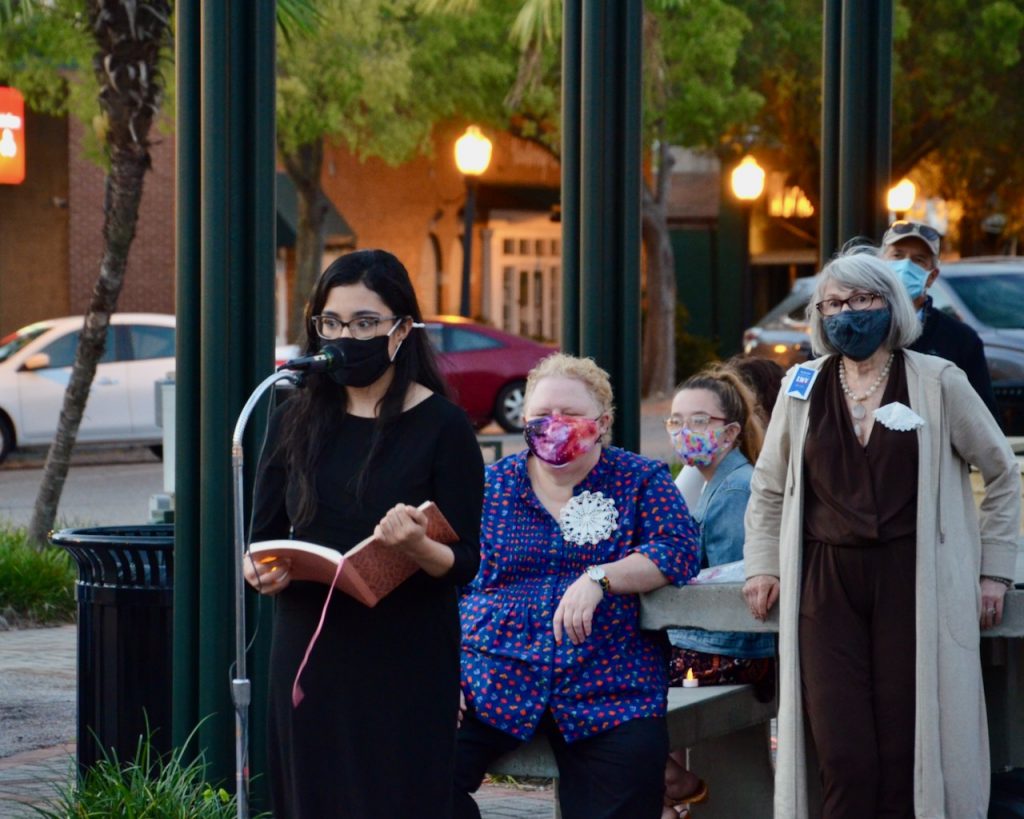
A student from USCA offered her thoughts about the impact of RBG on her life and those around her. 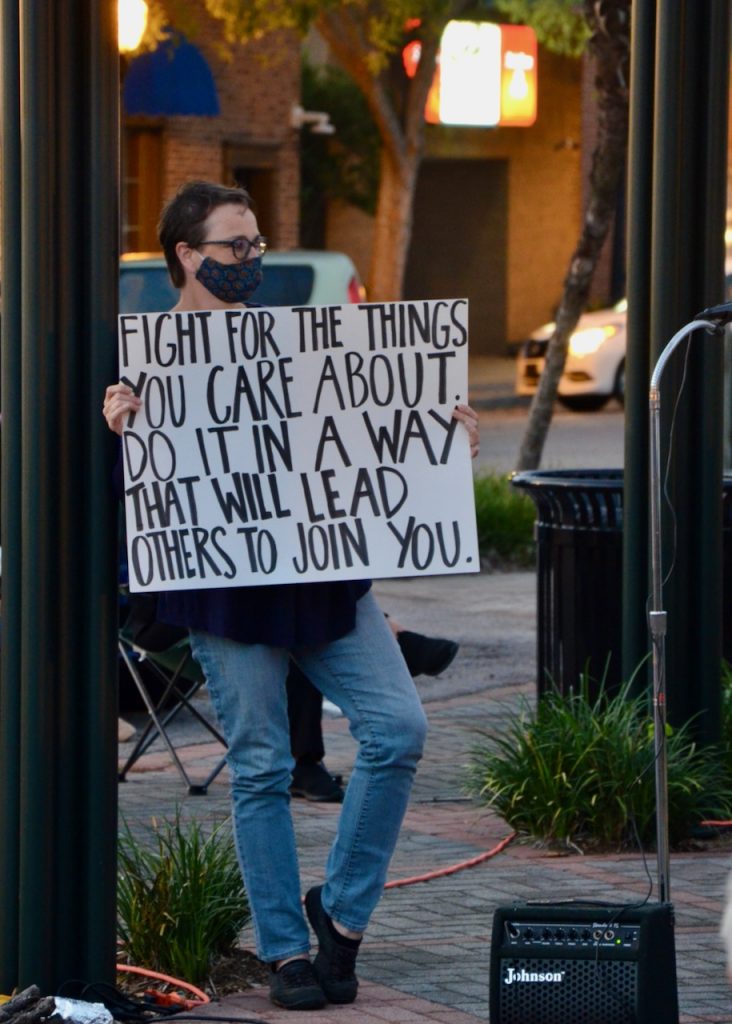
There were reminders about the causes, and the style, Ginsberg believed were important. 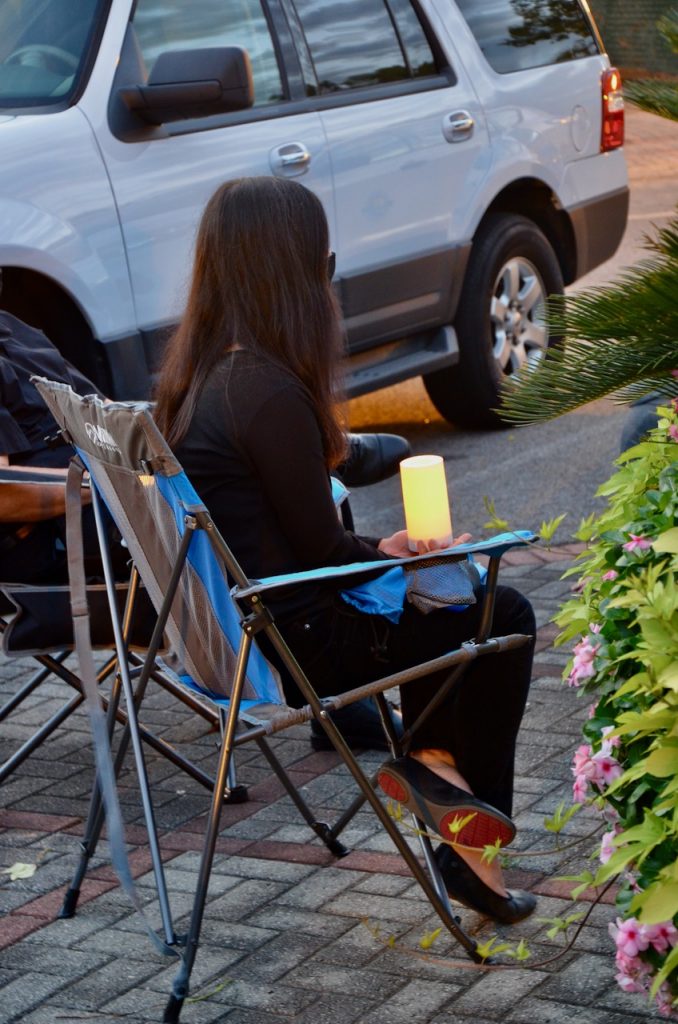
Candles and lights were held to remember her.

































